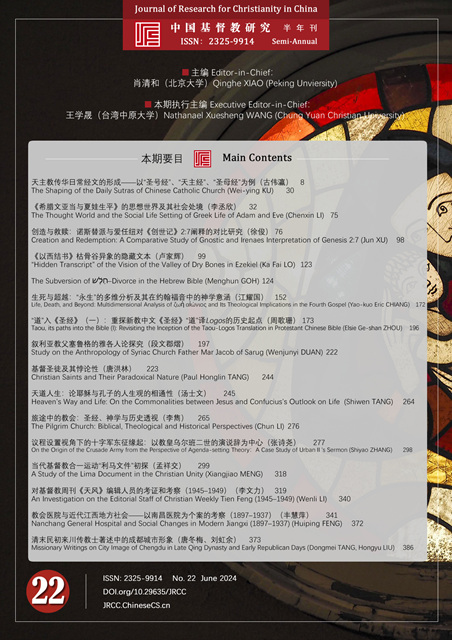Abstract
This study delves into the concept of Christian sainthood and discusses its inherent paradoxical nature from the perspective of Christian biblical theology. The article begins by clearly defining holiness as a unique attribute of God that stands in opposition to the profane and highlights God's unapproachableness and transcendence. Consequently, the author argues that the identity of sainthood is fundamentally based on belonging to God, rather than relying on personal moral perfection. It then analyses in depth the paradoxical nature of sainthood: despite the fact that saints derive their holiness from God's grace, they are still called to pursue holiness. Finally, the article further explores the contemporary interpretation of the paradoxical nature of sainthood. The author emphasizes that the saints are those who have entered the kingdom of God and should seek first and foremost God’s kingdom and God’s righteousness. In addition, the identity of saints as God's people determines and shapes their ethical behavior, and their qualities as saints are thus not the result of personal efforts, but rather the embodiment of God's grace, qualities that are manifested in the pursuit of the Kingdom of God. Therefore, this article effectively explains the saint's paradoxical nature and provides important theoretical guidance for the practical life of believers.

This work is licensed under a Creative Commons Attribution-NonCommercial-NoDerivatives 4.0 International License.
Copyright (c) 2024 Journal of Research for Christianity in China

